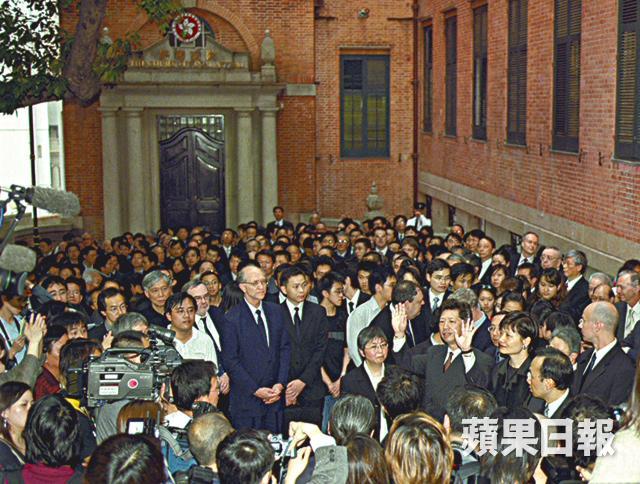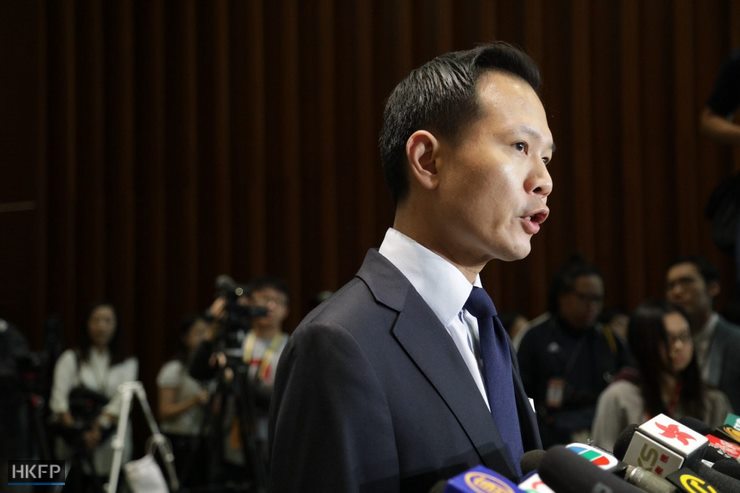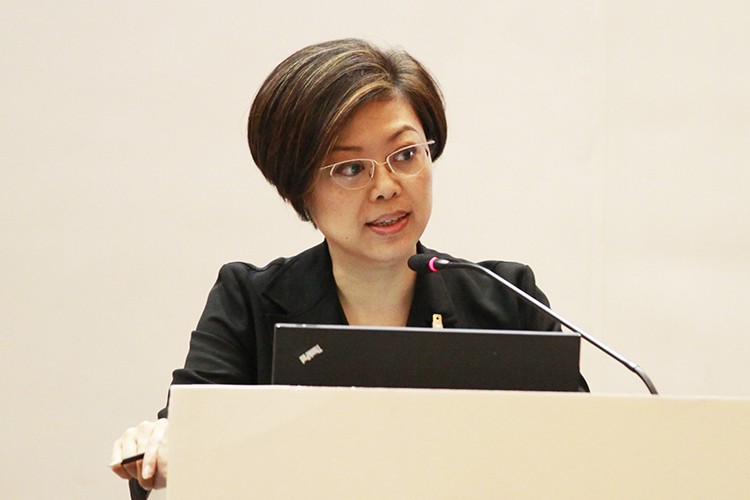The Hong Kong legal sector will hold a silent march in protest of Beijing’s decision to discuss a possible interpretation of the Basic Law at the current meeting of China’s top legislative body, in a bid to resolve the oath-taking controversy.
The government confirmed on Friday that it had been notified by Beijing on Thursday night, immediately after the conclusion of the hearing of a judicial review challenge against Youngspiration lawmakers Baggio Leung Chun-hang and Yau Wai-ching.

Article 158 of the Basic Law confers the power of interpreting Hong Kong’s mini-constitution on the Standing Committee of the National People’s Congress (NPCSC). In other words, the NPCSC’s opinions are final and legally enforceable.
An NPCSC interpretation – which has happened on four occasions since the 1997 handover – is always controversial owing to the public perception that Beijing is undermining Hong Kong’s judicial independence.
‘Significant damage’
Legal sector lawmaker Dennis Kwok Wing-hang said on Friday that legal professionals in the territory will be holding a silent march to protest against the possible NPCSC interpretation of the Basic Law.
The march, scheduled for Tuesday 5:30pm starting at the High Court and finishing at the Court of Final Appeal, will be the fourth silent march by Hong Kong’s lawyers since the 1997 handover.
Kwok said that this interpretation would be more damaging than the previous four on the basis that the court is currently writing a judgment. The issuance of an interpretation at this stage would render any judgment of the court meaningless. “It would cause a significant damage to the rule of law in Hong Kong,” he said.

Kwok added that the impugned provision – Article 104 of the Basic Law – is already clearly written and has little room for interpretation.
‘Helpless’
The Bar Association Chair Winnie Tam Wan-chi said she felt helpless about Beijing’s decision. She said that the move is “unfortunate,” as the NPCSC interpretation would lead Hongkongers and the international community to question whether Beijing has confidence in the ability of Hong Kong’s legal system to resolve disputes.
Beijing’s interpretation of the Basic Law will “inevitably” damage the rule of law in Hong Kong, Tam said.
She added that if the interpretation was issued before the High Court handed down a judgment, the court would have to apply the interpretation in its ruling. But if the court made a decision before Beijing’s issuance of an interpretation and if that decision was contrary to Beijing’s view, it would be difficult to assess the impact, Tam said.

The Bar Association said on Wednesday that it is “deeply concerned” about an NPCSC interpretation as it would deal a “severe blow” to Hong Kong’s judicial independence.
Hong Kong’s legal sector has held three silent marches since 1997. The first march took place in 1999, when the NPCSC issued the first interpretation of the Basic Law relating to the issue of the right of abode of Chinese citizens with Hong Kong parents. The second was held in 2005 after the NPCSC interpreted a provision in the Basic Law regarding the chief executive’s term of office.
In June 2014, the legal profession marched against Beijing’s issuance of a white paper on the One Country, Two Systems policy. In the report, the Chinese government called judges in Hong Kong “administrators.”
